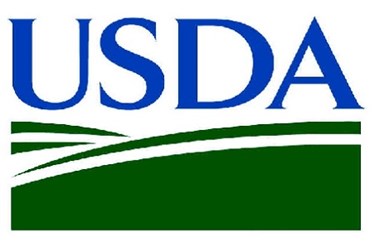The USDA's New Collaboration In The Interest Of Food Safety
By Laurel Maloy, contributing writer, Food Online

Food safety has become a talking point of global proportions, resulting in previously un-thought-of partnerships and information sharing
The U.S. Department of Agriculture (USDA) has announced its National Institute of Food and Agriculture (NIFA) and the United Kingdom’s (UK’s) Biotechnology and Biological Sciences Research Council (BBSRC) have joined forces. The two agencies, separated by an ocean, are jointly funding five food safety-related initiatives. Monies, in the form of research grants, will be awarded by the US-UK Collaborative Animal Health and Disease and Veterinary Immune Reagents program. This unified organization will fund food-safety research with almost $6 million, $2.3 million from NIFA and $3.5 million from the BBSRC.
NIFA’s director, Sonny Ramaswamy, spoke about the need for the safety, security, and quality of livestock produced in the U.S. and shipped around the world. He iterated that through this international partnership, new ways to control the spread of pathogens and effectively impact those issues relevant to food safety in both countries can be discovered.
The BBSRC’s Deputy Chief Executive, International, Steve Visscher, has spoken about how important the coming years will be to the growing world population in terms of food safety. He states, “The scale of such challenges requires increased international collaboration.” He went on to explain how this partnership will better enable both countries to find solutions to livestock diseases and to overall improve food safety.
The research funded through this joint effort will explore the biological and physiological mechanisms in regard to preventing disease in aquaculture, poultry, swine, cattle, goat, and sheep. The end result will be heightened production efficiency, upgraded animal health, and a much better understanding of how to safeguard global food supplies.
In 2014, this UK-US alliance focused its research on viral, bacterial, and parasitic diseases, as well as alternatives to the most-common antimicrobials and anthelmintics. It also concentrated its efforts on the development of freely-available immunological reagents for food-animal species. However, the two agencies separately funded a wide range of research awards related to such diseases as Avian Pathogenic E. coli (APEC), Bunyaviruses, and other diseases. APEC, for example, shares identical serotypes and virulence factors with the human pathogens. Bunyaviruses have now been proven to be transmitted by ticks, making it possible for livestock to human transmission.
Both agencies, interdependent of the other, provided funding to the same research programs in 2014, on both sides of the pond. Just as one food safety agency is being considered in the U.S., international collaborations, such as this make sense, both logically and financially. Stranger things have definitely happened — look at the incongruous partnership between Mars — a candy manufacturer — and IBM — a technology giant — for example. You have to wonder what other, unlikely partnerships could bring to the food industry.
